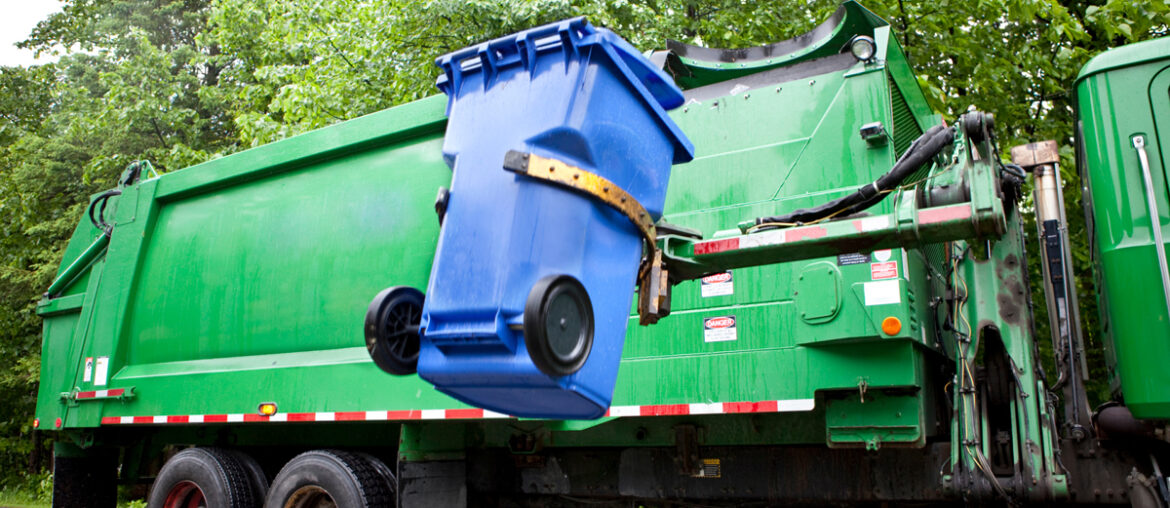Waste management companies face numerous challenges, from managing large fleets of vehicles to ensuring timely and efficient waste collection. One of the most effective solutions to these challenges is route optimization.
Efficiently running optimized collection routes is crucial for the financial health of waste management companies and municipalities, but it’s a highly complex task. There could be thousands of possible ways to travel from one service point to another on a single route; now imagine the complexity of an entire fleet navigating a network of routes. Additional variables — such as varying route densities, overlapping versus non-overlapping routes, and adjustments for holidays and inclement weather — further complicate the process. And for fast-growing cities, managing these challenges is even more demanding as they strive to keep up with growth and the accompanying changes.
By leveraging advanced algorithms and real-time data, route optimization can significantly enhance the efficiency of waste management operations. Here’s how:
1. Reduced Fuel Consumption & Costs
Route optimization helps in designing the most efficient routes for waste collection vehicles. By minimizing the distance traveled, waste management companies can significantly reduce fuel consumption. This not only cuts down on fuel costs but also decreases the wear and tear on vehicles, leading to lower maintenance expenses.
2. Improved Time Management & Efficiency
Enhanced overall effectiveness in waste management stems from process optimization, the elimination of inefficiencies and data-driven decision-making. By leveraging advanced technologies and real-time data analytics, the system optimizes resource allocation, cuts operational costs and streamlines collection routes. Prompt actions, informed by accurate data, prevent spills and promote responsible disposal methods. This comprehensive approach not only boosts environmental sustainability but also positions intelligent waste management as a cornerstone of modern, efficient urban waste management systems.
3. Enhanced Customer Satisfaction
Timely waste collection is crucial for maintaining public hygiene and customer satisfaction. Route optimization ensures that waste is collected promptly and reliably, reducing the likelihood of missed pickups and ensuring that customers are consistently satisfied with the service.
4. Reduced Environmental Impact
By optimizing routes, waste management companies can reduce their carbon footprint. Shorter and more efficient routes lead to lower greenhouse gas emissions, contributing to a greener and more sustainable environment. This is increasingly important as communities and businesses strive to meet environmental regulations and sustainability goals. Smart waste management significantly mitigates its environmental impact by optimizing collection routes and cutting carbon emissions. Real-time data analytics enable precise scheduling, ensuring trucks follow the most fuel-efficient paths and thereby lowering greenhouse gas emissions. Additionally, these systems prevent overflow and reduce the need for emergency pickups through timely interventions, further decreasing the carbon footprint. Streamlined processes enhance air quality and promote eco-friendly practices.
5. Data-Driven Decision Making
Route optimization tools provide valuable data and insights into the performance of waste collection operations. Companies can analyze this data to identify patterns, inefficiencies and areas for improvement. This data-driven approach enables better decision-making and continuous improvement of operations.
6. Scalability & Flexibility
As cities grow and waste management needs change, route optimization allows for easy scaling of operations. Whether expanding services to new areas or adjusting to seasonal fluctuations in waste volume, optimized routes can be quickly and efficiently recalibrated to meet new demands.
7. Enhanced Safety & Public Health
Optimized routes can help reduce the risk of accidents and improve overall safety for waste collection crews. By avoiding congested areas and high-risk routes, companies can protect their employees and reduce liability. Smart waste management systems reduce the risk of air and water contamination by efficiently collecting and disposing of hazardous materials. This leads to cleaner environments, which in turn lowers health risks, protects communities from illness and enhances overall well-being. By minimizing pest and pollution levels, these systems contribute to safer living conditions, underscoring the vital connection between effective waste disposal, environmental sustainability and public health.
Implementing Route Optimization in Waste Management
Invest in Technology
Adopting advanced route optimization software like RouteManager by WorkWave is the first step. These tools use algorithms and real-time data to calculate the most efficient routes. Look for solutions that integrate seamlessly with your existing fleet management systems.
Training & Adoption
Ensure that your team is well-trained on the new technology. Effective adoption of route optimization tools requires buy-in from all levels of the organization, from drivers to management.
Continuous Monitoring & Improvement
Route optimization is not a one-time task. Regularly monitor the performance of your routes and make adjustments as necessary. Use the data provided by your route optimization software to continually refine and improve your operations.
Engage With Stakeholders
Keep communication open with customers and municipal partners. Inform them of the benefits of route optimization and how it will improve service. Engage with the community to gather feedback and make necessary adjustments.
Conclusion
Route optimization is a powerful tool for waste management companies looking to enhance efficiency, reduce costs and improve service quality. By adopting advanced technologies and continuously refining operations, companies can achieve significant benefits that extend to their bottom line, their customers and the environment. Implementing route optimization is an investment that pays off in increased operational efficiency, customer satisfaction and environmental sustainability.
By leveraging the power of route optimization with waste management software, waste management companies can navigate the complexities of modern waste collection with greater ease and efficiency, ensuring a cleaner and more sustainable future for all. Get a free demo today!



